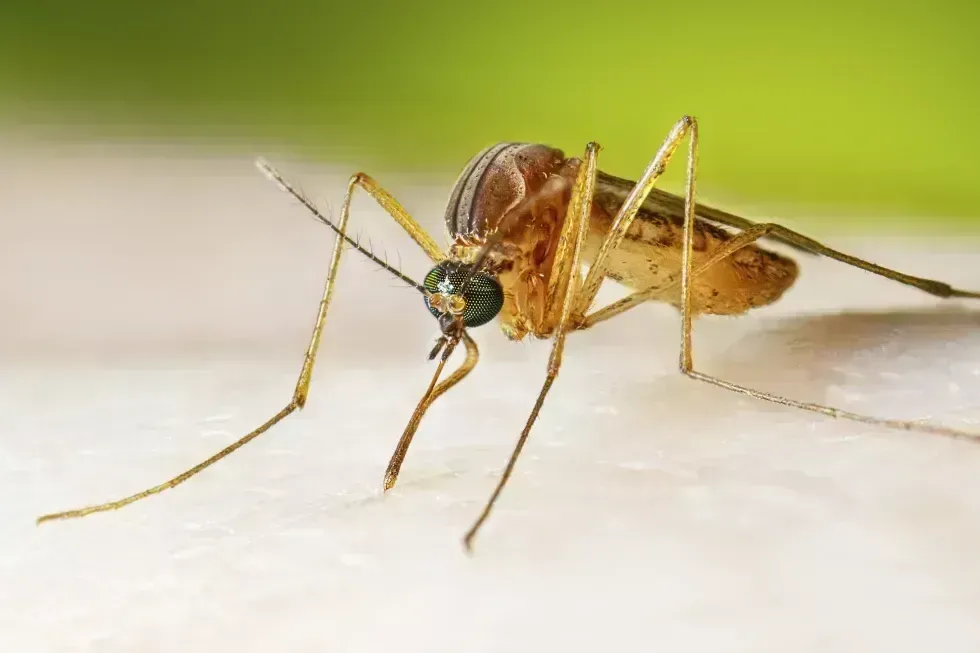
Post by : Shivana Rahim
This year, the West Nile virus cases in the United States are running 40% higher than usual, alarming health officials and prompting widespread warnings. With more than 770 cases reported as of early September 2025—including about 490 severe cases—the intensity of this mosquito-borne disease has sparked urgent calls for public awareness and preventive measures to safeguard communities.
This article explores the current West Nile virus outbreak, reasons behind the spike in cases, symptoms to watch for, and essential ways to protect yourself during this heightened risk period.
The West Nile virus is a disease transmitted to humans through mosquito bites, caused by a virus that originally came to the US in 1999. Many infected individuals do not display noticeable symptoms or have mild signs like headaches, body aches, and rashes. However, in severe cases, it can cause dangerous inflammation of the brain or spinal cord and even death.
Health authorities indicate that this year’s situation is serious, with more confirmed cases and severe illnesses compared to typical seasonal patterns.
Several factors have contributed to this year’s intense West Nile virus activity:
Environmental conditions such as temperature and rainfall influence mosquito populations and infection rates.
Variations in the amount of insect control efforts across regions affect mosquito control effectiveness.
Higher numbers of infected birds, which act as reservoirs for the virus, increase mosquito infection rates.
For example, in Colorado—a state historically prone to West Nile virus—the count of reported cases has more than doubled compared to other states, with Fort Collins emerging as a particular hotspot.
While many people may remain symptom-free, the virus poses significant health risks, especially to older adults and those with weakened immune systems. Symptoms may include:
Fever, headache, and body aches
Joint pain and vomiting
Skin rash and swollen lymph nodes
Severe illness can lead to neurological damage, meningitis, encephalitis, paralysis, and sometimes death.
Because of the rising cases, it is crucial to take precautions seriously during mosquito season.
Health officials stress the importance of personal protection to prevent mosquito bites:
Wear long-sleeved shirts and pants, especially during dawn and dusk when mosquitoes are most active.
Use an EPA-registered insect repellent as directed.
Eliminate standing water around your home where mosquitoes breed.
Use window and door screens to keep mosquitoes outside.
By staying vigilant and taking these preventive measures, individuals can reduce their risk of infection.
Government agencies such as the Centers for Disease Control and Prevention (CDC) are monitoring the outbreak closely and providing state-specific data and warnings. Public health departments are enhancing mosquito control programs and educating communities about mitigation strategies.
Ongoing surveillance, including tracking infected mosquitoes and birds, helps experts predict outbreak hotspots and implement timely responses.
The surge in West Nile virus cases is a reminder of the ever-present threat posed by mosquito-borne diseases. With infections running significantly higher than the norm, public awareness and protective actions are vital to reduce transmission and safeguard public health.
Stay informed, take preventive steps seriously, and consult healthcare providers if experiencing symptoms after potential mosquito exposure.










Curry Powers Warriors to Nail-Biting 109-108 Victory Against Spurs
Stephen Curry's 49 points propel the Warriors to a dramatic 109-108 NBA Cup triumph over the Spurs,

India Advances to Semi-Finals After Thrashing USA in Women’s Blind T20 World Cup
India secured a dominant ten-wicket victory over the USA, advancing to the semi-finals in the Women’

South Africa's Early Advantage as India Struggles on Day Two
On Day Two, India reached 138-4 as South Africa took three early wickets, complicating matters with

Kenta Nishimoto Defeats Lakshya Sen in Japan Masters Semifinal
Lakshya Sen's journey in the Japan Masters ends after losing to Kenta Nishimoto 19-21, 21-14, 12-21

Kenta Nishimoto Defeats Lakshya Sen in Japan Masters Semifinals
Lakshya Sen's run at the Japan Masters concludes with a loss to Kenta Nishimoto in the semifinals, 1

Major IPL Trade: Jadeja Joins Royals as CSK Signs Samson
In a significant IPL trade, CSK has acquired Sanju Samson from Rajasthan Royals in exchange for Ravi